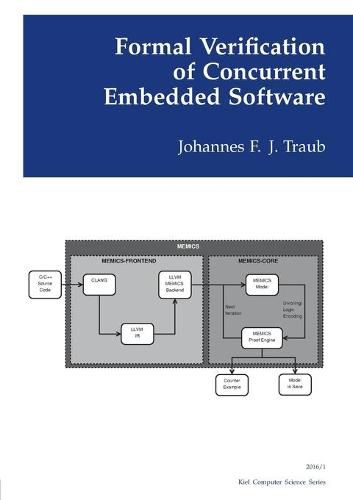Readings Newsletter
Become a Readings Member to make your shopping experience even easier.
Sign in or sign up for free!
You’re not far away from qualifying for FREE standard shipping within Australia
You’ve qualified for FREE standard shipping within Australia
The cart is loading…






This title is printed to order. This book may have been self-published. If so, we cannot guarantee the quality of the content. In the main most books will have gone through the editing process however some may not. We therefore suggest that you be aware of this before ordering this book. If in doubt check either the author or publisher’s details as we are unable to accept any returns unless they are faulty. Please contact us if you have any questions.
Automotive software is mainly concerned with safety critical systems and the functional correctness of the software is very important. Thus static software analysis, being able to detect runtime errors in software, has become a standard in the automotive domain. The most critical runtime error is one which only occurs sporadically and is therefore very difficult to detect and reproduce. The introduction of multicore hardware enables an execution of the software in real parallel. A reason for such an error is e.g., a race condition. Hence, the risk of critical race conditions increases. This thesis introduces the MEMICS software verification approach. In order to produce precise results, MEMICS works based on the formal verification technique, bounded model checking. The internal model is able to represent an entire automotive control unit, including the hardware configuration as well as real-time operating systems like AUTOSAR and OSEK. The proof engine used to check the model is a newly developed interval constraint solver with an embedded memory model. MEMICS is able to detect common runtime errors, like e.g., a division by zero, as well as concurrent ones, like e.g., a critical race condition.
$9.00 standard shipping within Australia
FREE standard shipping within Australia for orders over $100.00
Express & International shipping calculated at checkout
This title is printed to order. This book may have been self-published. If so, we cannot guarantee the quality of the content. In the main most books will have gone through the editing process however some may not. We therefore suggest that you be aware of this before ordering this book. If in doubt check either the author or publisher’s details as we are unable to accept any returns unless they are faulty. Please contact us if you have any questions.
Automotive software is mainly concerned with safety critical systems and the functional correctness of the software is very important. Thus static software analysis, being able to detect runtime errors in software, has become a standard in the automotive domain. The most critical runtime error is one which only occurs sporadically and is therefore very difficult to detect and reproduce. The introduction of multicore hardware enables an execution of the software in real parallel. A reason for such an error is e.g., a race condition. Hence, the risk of critical race conditions increases. This thesis introduces the MEMICS software verification approach. In order to produce precise results, MEMICS works based on the formal verification technique, bounded model checking. The internal model is able to represent an entire automotive control unit, including the hardware configuration as well as real-time operating systems like AUTOSAR and OSEK. The proof engine used to check the model is a newly developed interval constraint solver with an embedded memory model. MEMICS is able to detect common runtime errors, like e.g., a division by zero, as well as concurrent ones, like e.g., a critical race condition.